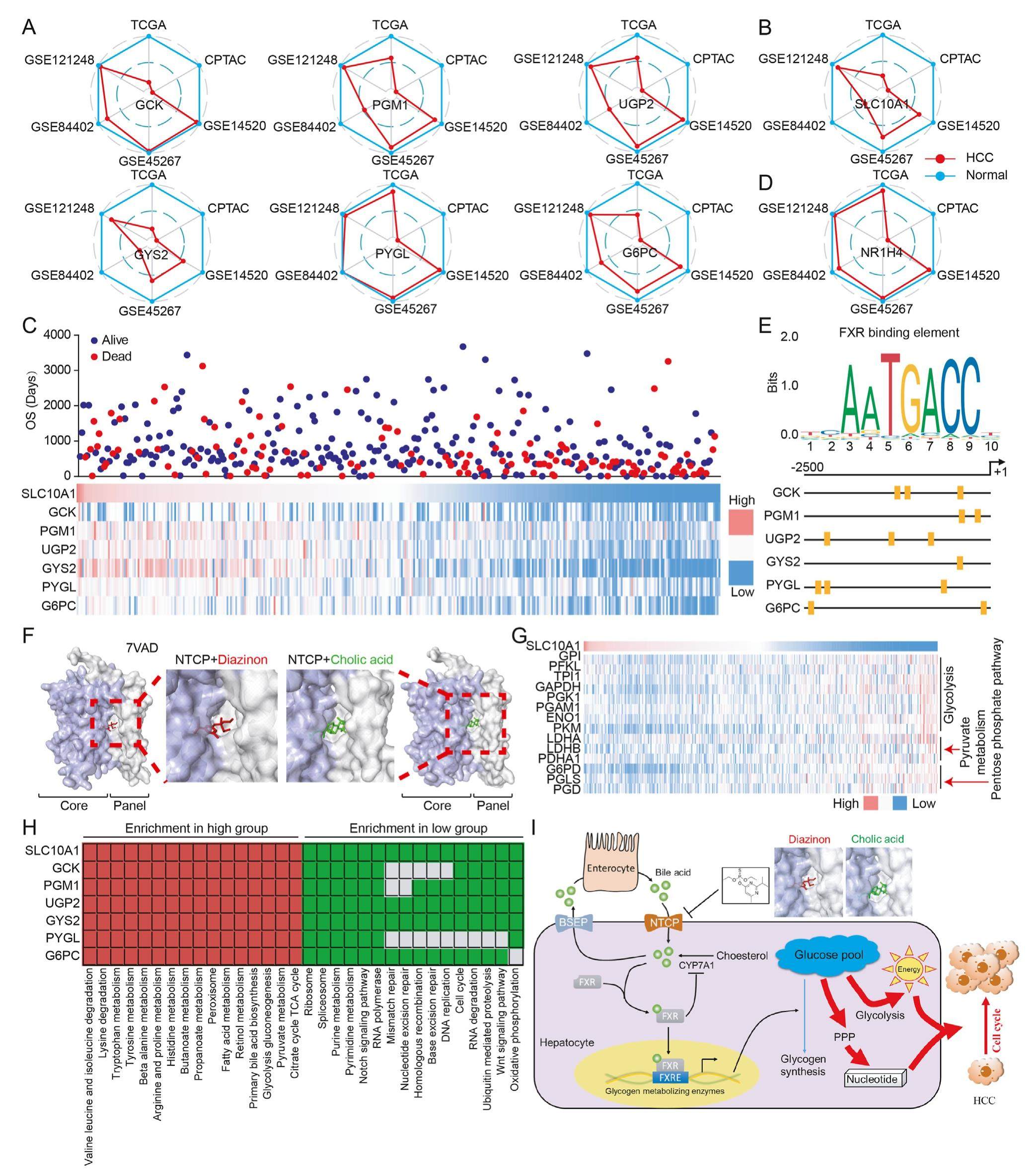
Interruption of bile acid enterohepatic circulation inhibits glycogen synthesis and promotes hepatocellular carcinoma progression


In recent years, increasing attention has been given to public health. Cancer and obesity are hot topics, in which glucose and lipid metabolism play an important role. Glycogen synthase GYS2 has been found to regulate glycogen metabolism in hepatocellular carcinoma (HCC) and is a potential prognostic factor and therapeutic target. Excessive bile acids induce intestinal injury and inflammatory bowel disease, and targeting bile acid receptors (FXRs) can regulate inflammation and repair damaged intestinal epithelial barriers. However, the research model of metabolic pathways focuses on the key enzymes, while ignoring the overall relevance. Here, we targeted the glycogen anabolism pathway and screened the upstream factor, bile acid transporter SLC10A1.SLC10A1 participates in the enterohepatic circulation of bile acids and regulates the transcriptional activity of the bile acid receptor FXR. Besides, we found that diazinon could bind NTCP and inhibit glycogen synthesis by mimicking the disordered bile acid enterohepatic circulation. Collectively, enterohepatic circulation of bile acids coordinates lipid metabolism and glucose metabolism and draws the metabolic crosstalk network, which provides a new perspective for the clinical treatment of HCC.
